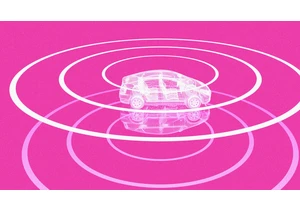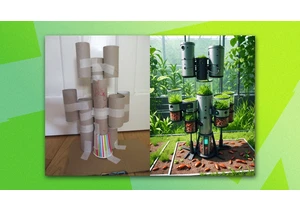Wegmans says shoppers were big fans of its self-checkout app that allowed them to scan groceries as they shopped and pay with a quick swipe of the phone at the end, and now we may know one reason why. The supermarket chain has announced that the app, called Scan, is being discontinued because of an unexpectedly large amount of product loss.
“Unfortunately, the losses we are experiencing prevent us from continuing to make it available in its current state,” it said in an email to customers, adding: “We’ve learned a lot and we will continue to introduce new digital solutions to streamline your shopping experience for the future.”
The Scan app was part of how Wegmans adapted in 2020 to fears over the spread of COVID-19 and the pandemic worker shortage. It gave shoppers a contactless option for grocery shopping, then on the back end, shortened checkout lines considerably. Users would scan each new item and deposit it in their cart as they strolled through the store. At the end, they simply scanned a barcode at the self-checkout register, giving them their cart’s total.
By now, self-checkout is old hat at all kinds of supermarkets, convenience stores, and pharmacies. Surveys show consumers’ relationship with it is very love-hate, with many presumably enjoying the ease of zipping in and out of stores without having to talk to anyone, but growing annoyed when it takes five minutes to flag down an attendant so they can buy a six-pack of beer—to say nothing of when the computer inevitably insists that there are unpurchased items in the bagging area.
Amazon has separately pioneered what it calls Just Walk Out technology, in which shoppers are effectively tracked from the moment they walk in by a network of cameras and sensors that record every item they place in their carts (or even stop and look at). Just Walk Out lets customers simply leave when they’re done shopping, and Amazon will automatically charge them for everything they grabbed.
However, the Wegmans Scan system differed from both of these, because it relied on the shopper to accurately and faithfully record all products that were added to the cart.
Wegmans’ system was less invasive than Amazon’s, but perhaps at the chain’s expense. It acknowledged that users had said “they love the app and convenience it offers.” It didn’t say how much “shrinkage” had occurred, as theft and waste are euphemistically called by the industry. Data has shown shrinkage for retail establishments (due to both theft and error) is almost twice as high in self-service lanes than in traditional checkout lanes.
Wegmans also didn’t say whether it has any way of knowing if the losses were items customers stole intentionally, or items they accidentally forgot to scan—after all, this is hardly muscle memory for most grocery shoppers just yet.
To apologize for the inconvenience, Wegmans emailed frequent app users a $20 coupon. Its statement also said the app is being retooled, to better “meet the needs of our customers and business.” That’s probably because this dam has burst, even if retailers and shoppers alike seem more resigned to than excited by this fate. (A Wall Street Journal headline from last week: “More Self-Checkout Is Coming, No Matter How Much You Hate It.”)
In fact, Instacart announced today that it’s diving deeper into brick-and-mortar by introducing a suite of new smart-shopping features, telling Fast Company these tech advancements “solve real consumer problems that we can all relate to.” One feature sounds nearly identical to Wegmans’ erstwhile app: Scan & Pay, which allows shoppers to scan groceries as they shop, then pay using their mobile phone, so there’s no need to wait in line.
The other big feature is a new line of smart carts that sound like what Wegmans probably wishes it had done: “Caper Carts” are effectively normal shopping carts tricked out with touchscreens, scales, and sensors. Customers drop in their items, which get sized up, weighed, and recorded, and then check out using the tablet connected directly to their cart’s handle. They never manually scan anything.
Melden Sie sich an, um einen Kommentar hinzuzufügen
Andere Beiträge in dieser Gruppe

As you scroll through your FYP, a sweet elderly man or woman appears, asking for a moment of your attention to help save their struggling animal shelter.
“Please stay 8 seconds so I don’


Stephen Miller, the hard-line Trump adviser who helped craft some of the administration’s most aggressive immigration enforcement policies, is apparently profiting from the tools that make them po

Robotaxis are crashing into the rideshare market.
Drivers for apps like Uber and Lyft are growing worried about autonomous vehicles. Waymo has already deployed their vehicles acros


Danish artist Andreas Refsgaard has been combining generative AI with handcrafted prototypes to create unique glimpses of what’s ahead—a future that could one day make artists like him obsolete.

Is it time to BeReal again?
In 2022, the photo-sharing app surged in popularity, won Apple’s “App of the Year,” and even earned its own SNL skit. Once a day, at a random time, users were
